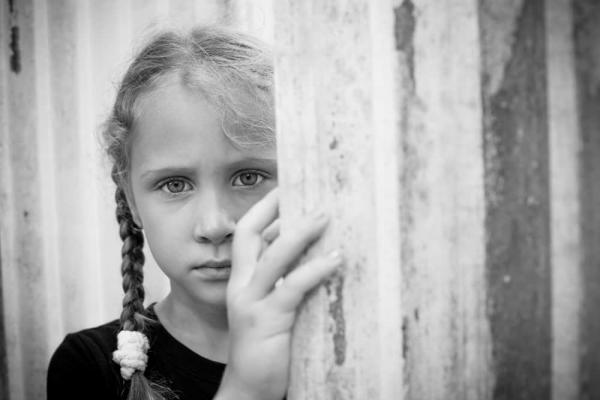
My eyebrows turn in as I glare at my son. "Why are you wearing those? It is way too hot outside," I say. He is lovingly wearing his favorite knee-high sports socks on a sweltering 100-degree day.
"But I like these socks," he retorts.
I place my hands firmly on my hips and brace for the imminent argument. "You can't wear those; you will roast today at summer camp."
"But I want to wear them," he whines.
"Go put your other socks on. Now. Scoot!" I order. My annoyance is growing exponentially. "Why won't he listen to me?" I wonder. "I know what I am talking about."
I quiet my thoughts.
"Calm down Damara, you know how to speak respectfully. Don't shame him because he likes to wear those socks," I then think to myself.
Sometimes I find myself critically judging my children's choices. Sadly, when this happens, without even realizing it, my statements can cause negative internal feelings. Fortunately, I've become aware of the powerful influence my words and body language have on my children.
I recently read in Brene Brown's book "Daring Greatly," that "Shame is so painful for children because it is inextricably linked to the fear of being unlovable." My eyes were opened to this simple truth. Name-calling, criticizing and being judgmental towards our children opens the door to feelings of shame. We unknowingly cause them to think, "I am a bad person. I am unlovable. I don't matter."
I realized that stopping this vicious cycle starts with me. Yes, my children require reasonable rules and boundaries, but I must be aware of the effects my words and body language have on them.
As parents, our foremost goal is taking personal responsibility for our actions and communications with our children. This starts with being aware. Here are three ways of communicating with our children that can accidentally shame them.
Critical remarks
When we criticize our children and belittle their personal choices, we shame them. We send the message "You are incapable, unintelligent or just plain stupid." Some examples of critical remarks are:
-
"What is wrong with you?"
-
"I can't believe you just did that."
-
"What were you thinking?"
Sometimes we are baffled by our children's actions (such as my son wearing long, hot socks in 100-degree weather). But instead of shamelessly criticizing their choices, we need to first acknowledge their point of view by validating them. Follow up by asking, "Can I share something I feel is very important?" And then calmly and respectfully share your point of view.
Let's return to my story:
I look at my son's sagging shoulders as he walks away from me. "I see how much you love those socks," I call out. He turns. "Can I share something I feel is very important?" I ask. He nods. "It is going to be really hot today. What other pair of socks can you wear that will help you stay cooler?" He still insists on wearing his socks so I say, "You can wear them. Please put a pair of short socks in your backpack in case you get too hot." The next morning I remind him of the heat and he agrees it is best to wear his shorter ankle socks.
Wow! He successfully learned from his personal experience without shameful criticism from me.
Harsh tone of voice
Children lack internal filters. Life is new and fresh to them. When we speak with harsh tones and angry facial expressions, this too can shame them.
This causes our children to think, "Wow, I must be a really bad boy if mom is glaring while harshly speaking to me." We want our children to improve and we need them to be cooperative; however, speaking to them harshly with mean looks can fuel shame.
Yes, at times you need to be firm, but even that can be done with a calm, respectful voice.
Laughing at them
Children love having fun and find humor in many situations. When my son walked down the stairs wearing those long socks, I could have laughed out loud at the absurdity of his choice. However, that would have flung open the door to shame and humiliation.
Resist laughing at your children. Lovingly speak to them so they feel empowered and know they are worthwhile individuals.
Parenting is tricky
You may have been shamed as a child and do not know how to stop the vicious cycle. Start by asking yourself these questions: "Am I the adult that I want my children to be?" "Do I treat my children with the love and respect I need and appreciate?" "Do my children know they are lovable, worthwhile individuals?" Consider these questions. If they prick you in an area where you can improve, dive in with courage and love as your guide.
Your children are watching you. They learn much from who you are. May we all become more aware as parents and steadily improve each day!
If you find this article insightful and want to help shed light on shame, feel free to share it with your friends and family.
Editors note: This article was previously published on Parentingbrilliantly.com. It has been republished here with permission.

